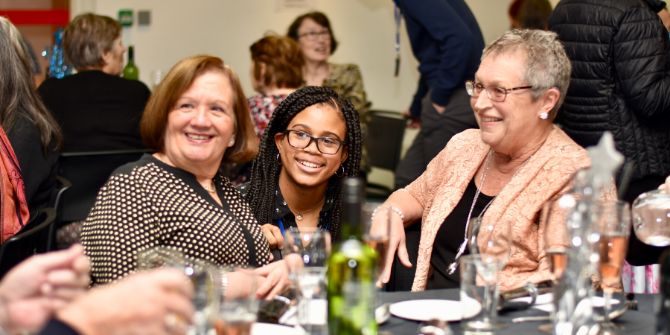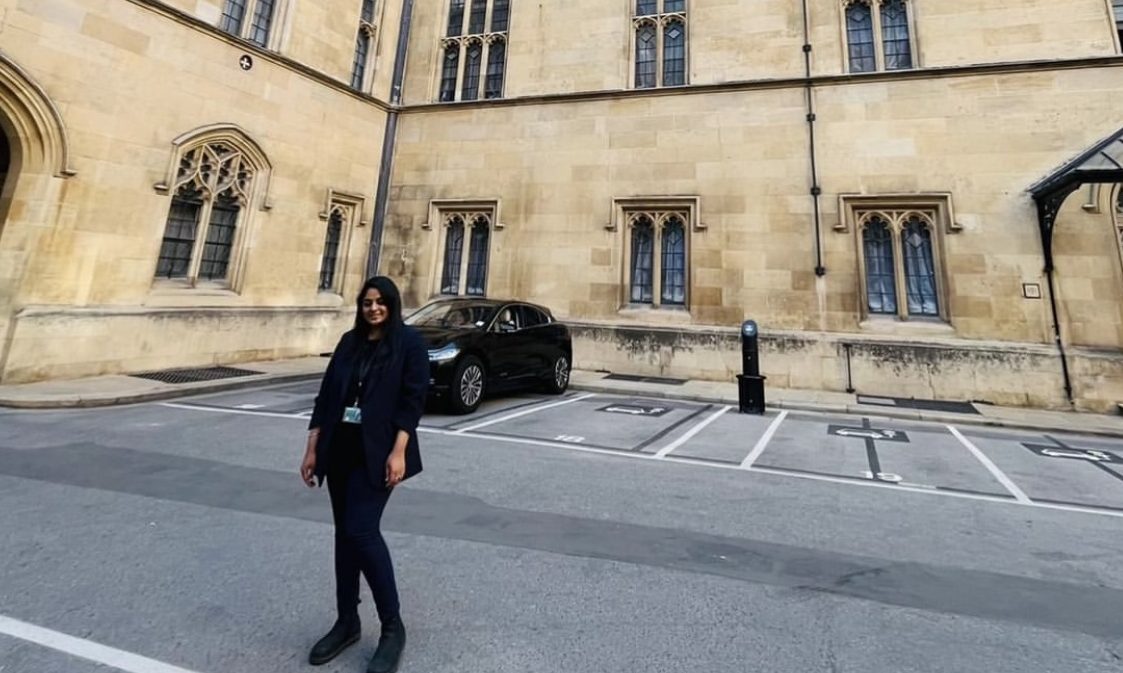Volunteering opportunities come in all shapes and sizes, so there ought to be something for everyone. Unfortunately, certain opportunities are more likely to be filled by people from particular groups. Take trustee positions; the average board member seems to be white, older, middle class, and male. When charity boards are not representative of society at large that is likely to negatively affect the impact of the work of charities. It is therefore not surprising that the call for more diversity on trustee boards is getting louder and louder. Some charities now aim to have (ex)beneficiaries on their board and they’re trying to attract more diverse talent in terms of ethnicity, age, class, education, gender and sexuality among others. By becoming more diverse a charity recognises that people have more to offer than just (a certain type of) work experience. More diversity on trustee board can result in fresh input, energy and different skills.
Although it might seem a bit daunting at first to become a trustee, you shouldn’t forget that you have lots of skills to offer. Read on to find out what initial steps you have to take to find a fitting trustee role.
1. What are you passionate about? What is it that you care strongly about?
Instead of starting with researching what a trustee position is, start thinking about what you’re passionate about. What cause or injustice do you care strongly about? Think about the articles, documentaries and public lectures you found interesting, heated discussions you had with your friends, and maybe organisations where you’ve worked or volunteered. What is the issue (or issues) that interests you most and what is it that you’d like to change? Try to break this down as far as possible in terms of the scale, size and the service delivery approach. For example, if you’re interested in educational inequality, is this on a global, national or local scale? And what type of organisation attracts you most? Are you for example more drawn to large advocacy charities or to a small community based charity that provides tutoring for children.
For some people, this step is really easy. Others might find it more difficult to narrow down what they enjoy working on. If this is the case, you can also turn it around: eliminate what you don’t find interesting enough. Discussing with others can also help you get a clearer perspective on what it is that you really care about. Don’t be afraid to take your time for this step. After all, you’ll be investing time and energy working on this cause if you decide to become a trustee.
2. What does it entail to be a trustee?
Congrats, you’ve figured out what cause or causes you really feel passionate about! Next you’ll need look into what it exactly entails to be a trustee. What are your duties and responsibilities? What are the legal liabilities? The Charity Commission and NCVO have both published useful documents explaining the answers to these questions. Have a read through them and see if this seems like something you’d enjoy doing.
You can also reach out to trustees via email or LinkedIn and ask if they’d be willing to have a call or meet for a coffee so you can get more insight into what it’s like to be a trustee. Be aware that the charity’s size strongly influences the duties of a trustee. Although certain tasks will be executed by every trustee, your role is likely to be more hands-on in smaller charities.
If regular direct contact with the charity’s beneficiaries is more something for you than developing overarching strategies, then becoming a trustee might not be something for you. That is not to say that the two can’t go together. Trustees often also volunteer ‘on the ground’ to get a better impression of the work and needs of the organisation. I would even encourage you to do so. Knowing what goes on in the organisation and better understanding the needs of the beneficiaries can help you come up with appropriate short and long term strategies and solutions. Moreover, you’re more likely to get the staff on-board if change of direction is needed.
If you decided that a trustee role doesn’t match with what you enjoy doing, no worries. You’ve found the cause that you really care about so you might as well consider volunteering in a different role.
3. Start your search for a trustee position
If by now you know what you’re passionate about and you’ve decided you still want to become a trustee you can start your search for a fitting trustee role. The process of finding a trustee position can be quite lengthy because they’re often not widely advertised. However, don’t let that put you off!
A good place to start looking is LSE CareerHub and NCVO’s trustee bank. You can also search do-it.org or even a simple Google search. In addition, you can browse websites of individual charities. Even when you don’t see trustee positions listed it’s worth reaching out to ask about any available trustee positions and/or information on when they’re likely recruiting again. This route can prove successful as many trustee positions aren’t (widely) advertised. We’d advise charities to start thinking about advertising their trustee roles via different platforms. After all, it is unlikely that boards become more diverse when trustee vacancies are only known to those in the inner circle.
4. Prepare your application
When you found a role that sounds interesting it’s time to prepare your application. Try to find out as much about the organisation as possible by reading through their website, their annual reports on the charity commission website, and if possible by talking to one or more people from the organisation. Being a trustee comes with responsibilities so you should know what you’re getting yourself in to.
Still convinced this is the charity for you? Then it’s time to start writing your letter and tailoring your CV. If you like us to help you with this, or if you’d like to know more about being a trustee you can book a one-to-one with David Coles, the Volunteer Centre Manager. David has been a trustee since he was 18 so he can tell you more about his experiences. Or you can send an email to volunteer@lse.ac.uk if you have more questions. If you’re an LSE student or graduate who has been or is a trustee please also send us an email. We would love to hear more about your experiences.





